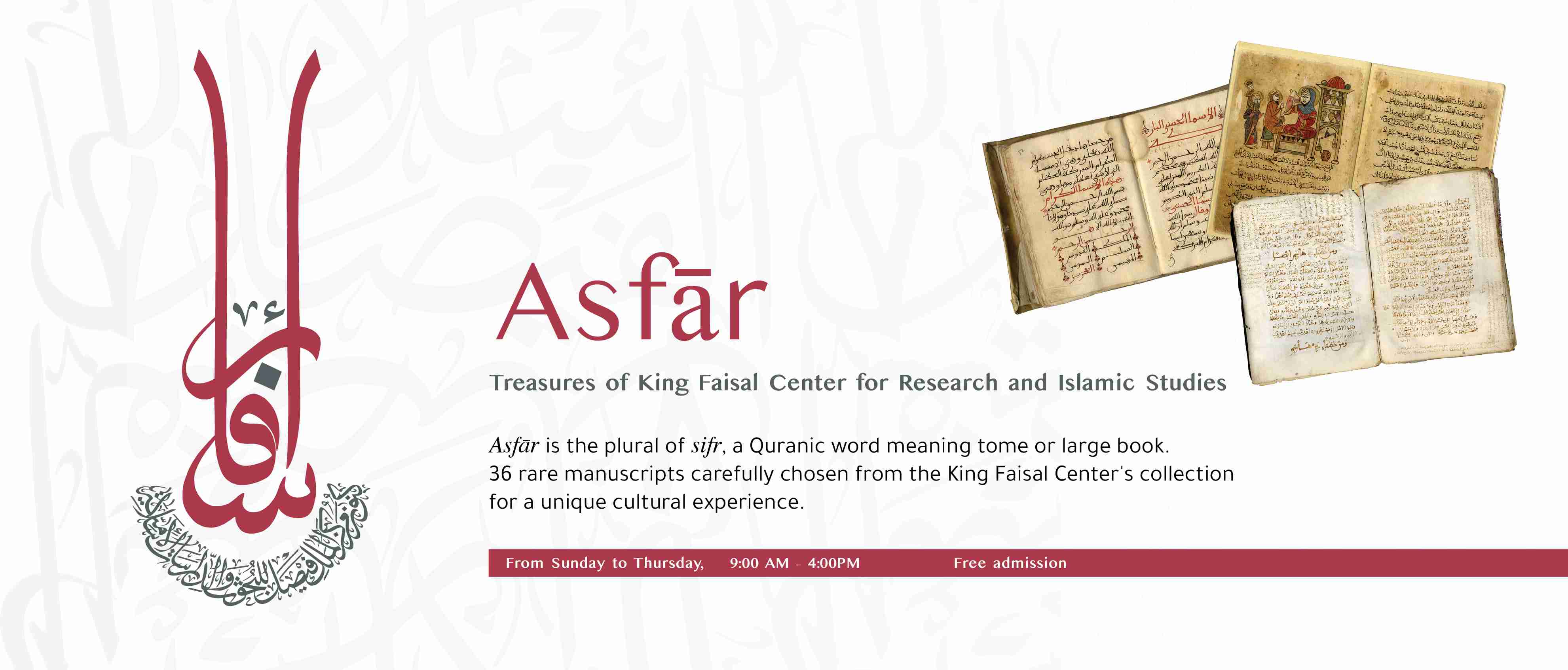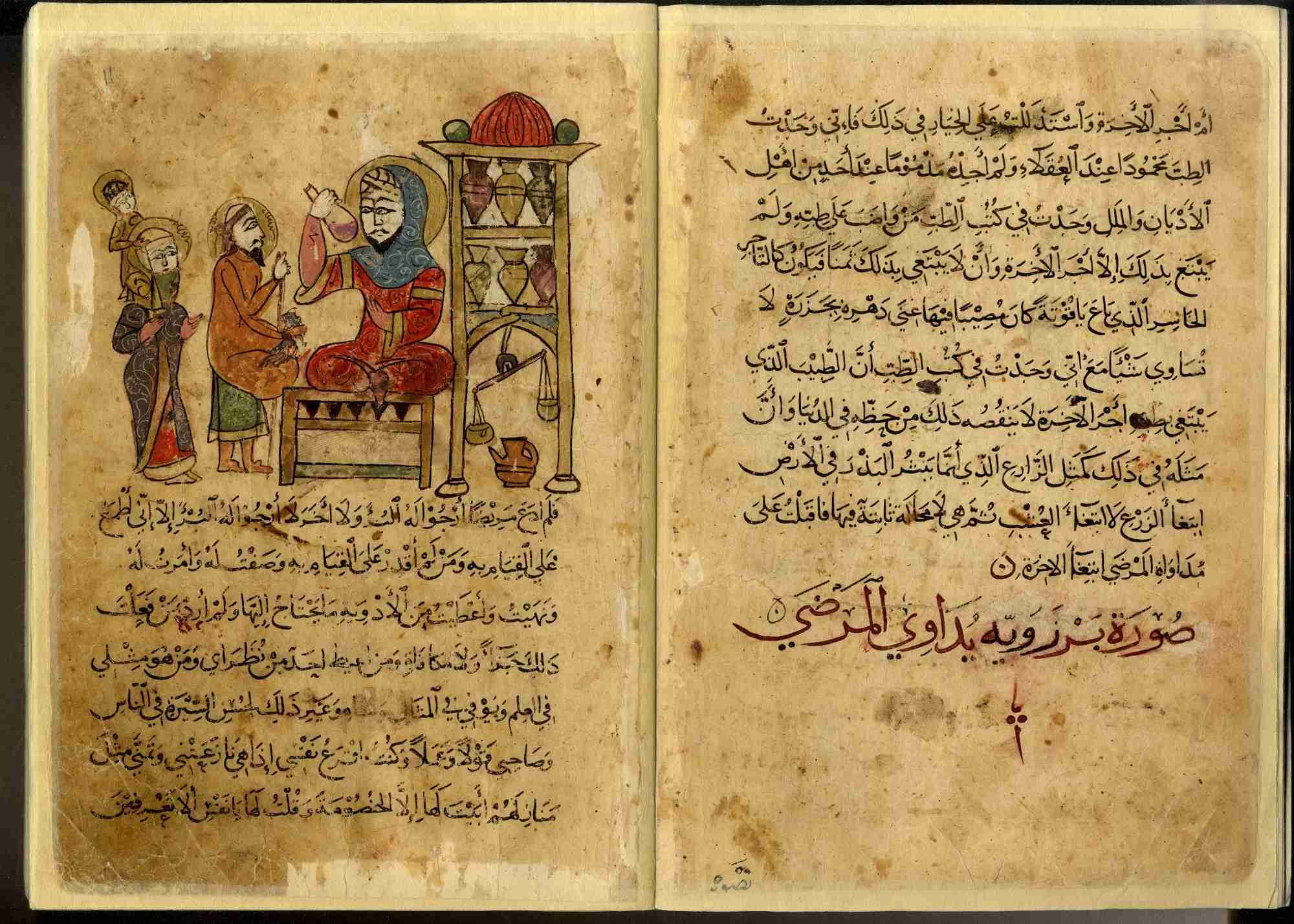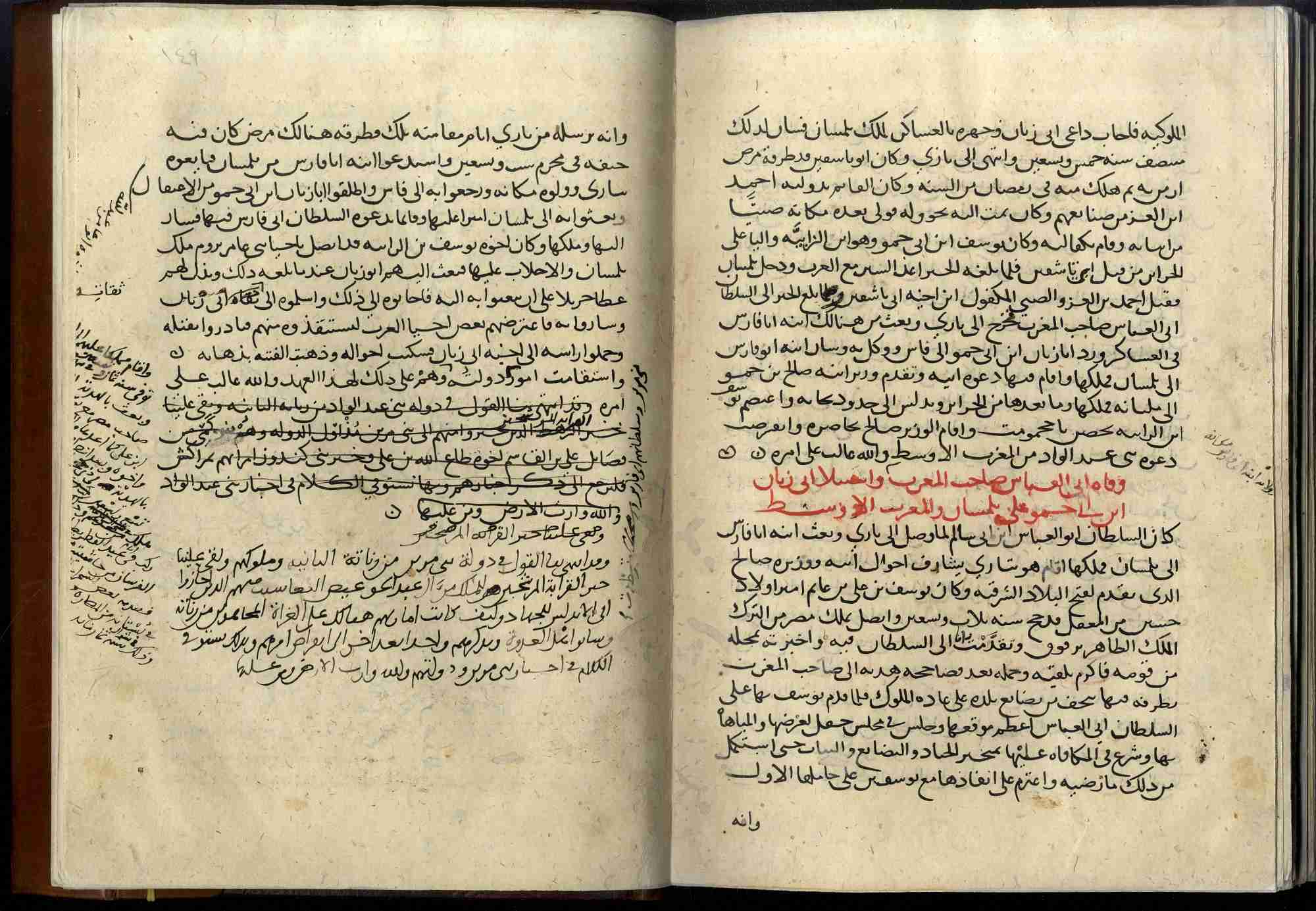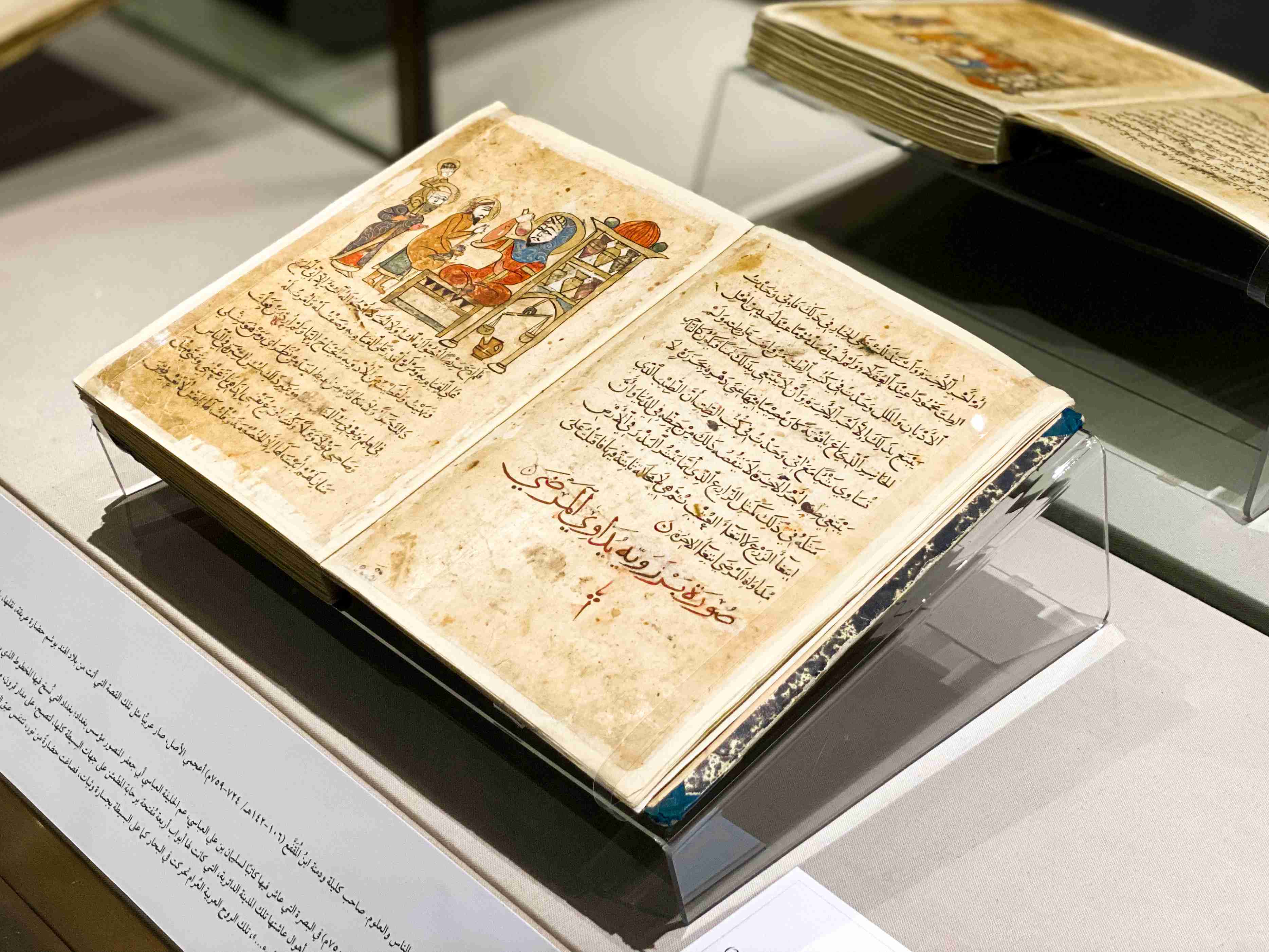Asfār: Treasures of King Faisal Center for Research and Islamic Studies

Asfār is the plural of sifr, a Quranic word meaning tome or large book.
The exhibition provides visitors with a unique cultural experience by showcasing 36 rare old manuscripts preserved by King Faisal Center for Research and Islamic Studies (KFCRIS), which are carefully chosen from the Center’s collection of more than 28,500 manuscripts.
These manuscripts include:
Kalīla wa Dimna (Kalila and Dimna) – 1346/747 AH, Baghdad
The ancient animal fables translated to the Arabic language by Ibn al-Muqaffaʿ (d. 759/142 AH) – this copy, written by Muḥammad ibn ʿAlī al-Ḥanafī, is believed to be the second oldest copy existing in the world.

Holy Qurʾān – 14th century/8th century AH, Cairo
A copy of the Holy Qurʾān written in a Mamlūk-era Egypt, which was endowed by Hadaq (Sitt Miska), a freed female slave and the nursemaid of Sultan al-Nāṣir Muḥammad ibn Qalāwūn (d. 1341/741AH), to her mosque.
Kitāb al-ʿIbar (Book of Lessons) – 15th century/9th century AH, Cairo
A copy of the prominent history book written by Ibn Khaldūn (d. 1405/808 AH), an intellectual colossus in the Muslim world in the Middle Ages. The copy contains the author’s handwritten comments.

Holy Qurʾān – 1694/1105 AH, Hamburg
A copy of the second Holy Qurʾān printed in Europe following the first printed in Venice in the 1530s – it, nevertheless, contains a number of spelling errors.
Description de l’Égypte (The Description of Egypt) – 1809/1224 AH, Paris
One of the five copies of the first edition (Imperial edition) of the encyclopedia on Egypt written by a group of scholars at the order of Napoleon Bonaparte following his expedition to Egypt (1798-1801).
Videos (Arabic):
The exhibition is taking place at Al-Faisal Museum for Arab-Islamic Art (2nd floor).
Open from Saturday to Thursday, 9am to 9pm. Admission is free.


